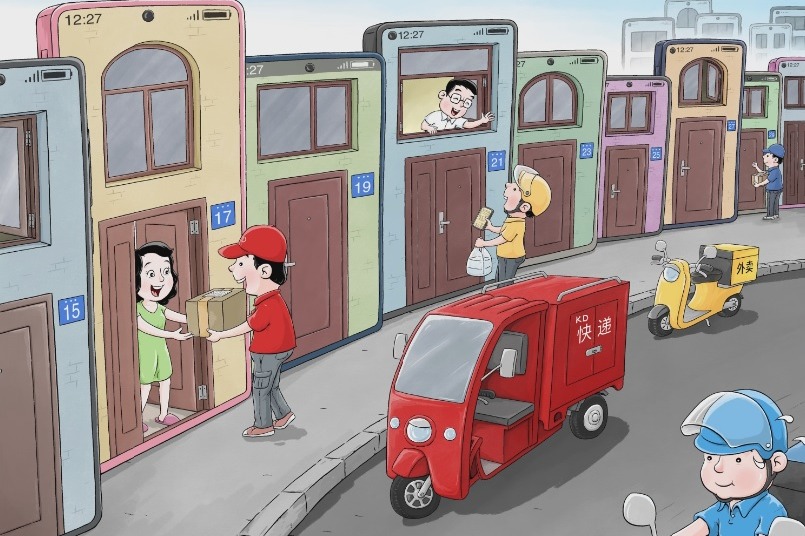Use urbanization lessons to revitalize rural areas


China launched reform and opening-up more than four decades ago essentially to boost economic development, lift hundreds of millions of Chinese people out of poverty, and improve people's lives and livelihoods. It has achieved those three goals: rapid economic development, eradication of absolute poverty last year, and higher per capita income.
In 1978, when reform and opening-up were launched, only 17.8 percent Chinese people lived in urban areas. Over the years, the urbanization rate increased rapidly year by year; and as a result, more than 60 percent of China's population today lives in urban areas.
Now that China has achieved a healthy urbanization rate, the focus of the 14th Five-Year Plan (2021-25), has shifted to advancing "rural revitalization", a concept coined by Xi Jinping, general secretary of the Communist Party of China Central Committee, at the 19th National Congress of the CPC in 2017.
About 840 million people in China were living in cities by the end of last year-by far the highest in the world-and about 160 million of them were migrant workers. Which arguably makes China an urban society. So the focus is now on the revitalization of rural areas.
But to revitalize rural areas, the government needs to first reduce the economic disparities between urban and rural areas by taking measures develop the rural areas and agricultural sector, and improve the lives and livelihoods of rural residents. And to achieve this, the government has to draw upon lessons from the past.
First, the urban shift over time did not integrate rural and urban areas. Instead, it led to the emergence of megacities. Second, the potential and vitality of small cities have not yet been fully unleashed, and only by developing small cities which are needed to nurture rural areas and help close the economic gap between rural and urban areas.
Accordingly, the government should boost the economic development of counties and major city clusters, because small towns play an important role in overall development, and revitalization of counties is essential to China's modernization. In particular, accelerating the development of small cities can reduce the development gap between rural and urban areas and prevent rural people from sliding back into poverty. The idea should be to develop livable cities and towns.
A livable town is different from an administrative division and an industrial park in that it combines the advantages of industries with culture, creativity, a livable environment and tourism.
The central government is paying great attention to the development of such small towns and has instructed local governments across the country to nurture some 1,000 such towns by 2020. So the local officials should use big data, cloud computing, the internet of things to transform such towns into smart towns where residents can be connected to resources and facilities through a smart interactive network.
In other words, local governments should play the most important role in building smart towns following the same policy used in building smart cities. They must map out plans to preserve the local culture and traditions, and take measures to prevent local residents from losing their unique identity. For if they don't do so, these towns will become vanity projects.
The local officials should also give innovation full play, and adhere to people-oriented, transparent and environmentally friendly planning while building such towns, because only a people-centric town can be truly competitive.
There is a need to integrate information and communications technology with the local industries and eco-system to successfully build smart towns. It is also extremely important that local governments understand the purpose of developing such smart towns, which is to help residents develop a greater sense of fulfillment, happiness and security, and improve governance. The larger the scale of smart towns, the more important role they will play in rural revitalization.
The author is a professor at the National Academy of Governance.
The views don't necessarily reflect those of China Daily.


































